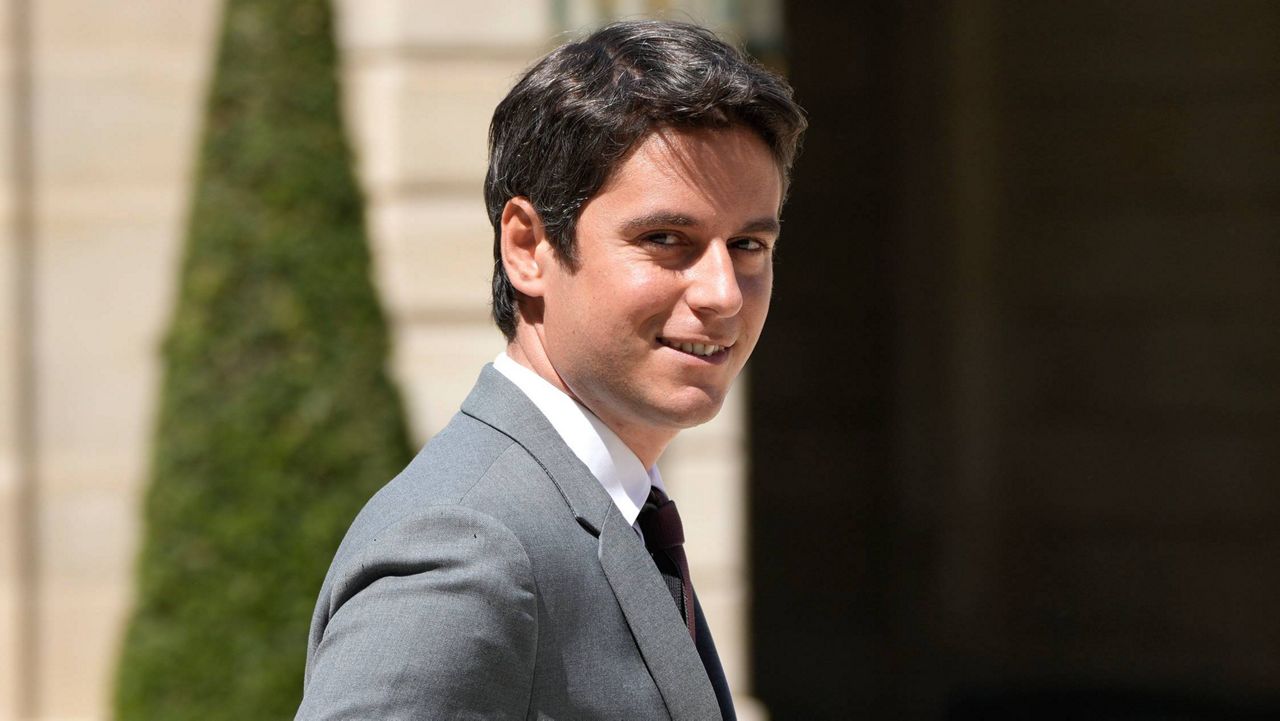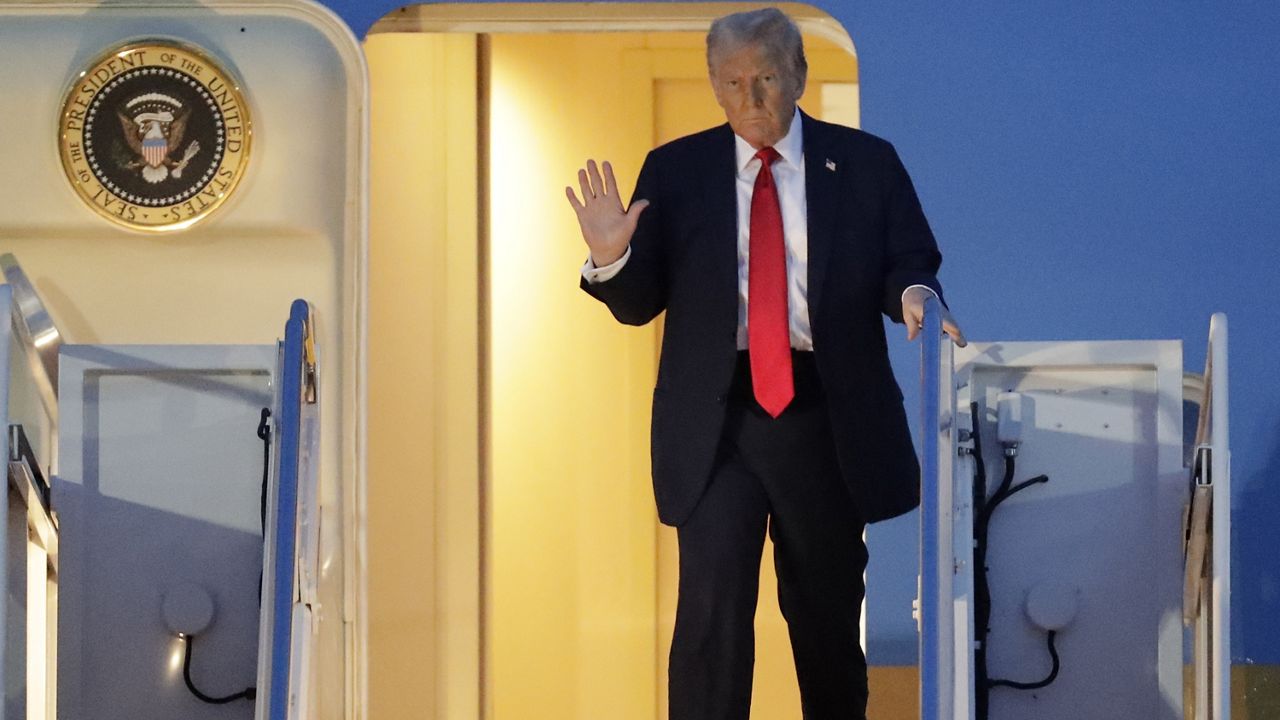Gabriel Attal was named Tuesday as France's youngest-ever prime minister, as President Emmanuel Macron seeks a fresh start for the rest of his term amid growing political pressure from the far right.
What You Need To Know
- Gabriel Attal has been named as France's youngest-ever prime minister, as President Emmanuel Macron seeks a fresh start for the rest of his term amid growing political pressure from the far right
- Attal, who's 34, rose to prominence as the government spokesman and education minister
- He is France's first openly gay prime minister
- His predecessor Elisabeth Borne resigned Monday following recent political turmoil over an immigration law that strengthens the government's ability to deport foreigners
Attal, 34, rose to prominence as the government spokesman and education minister and had polled as the most popular minister in the outgoing government. He is France's first openly gay prime minister.
His predecessor, Elisabeth Borne, resigned Monday following recent political turmoil over an immigration law that strengthens the government's ability to deport foreigners.
Macron's office announced the appointment in a statement. He will work with Attal to name a new government in the coming days, though some key ministers are expected to continue in their posts.
''I know I can count on your energy and your commitment,'' Macron posted on X in a message to Attal. The president made a reference to Attal reviving the ''spirit of 2017,'' when Macron shook up French politics and shot to a surprise victory as France's youngest-ever president on a pro-business centrist platform aimed at reviving one of the world's biggest economies.
The 46-year-old president has shifted rightward on security and migration issues since then, notably as far-right rival Marine Le Pen and her anti-immigration, anti-Islam National Rally have gained political influence.
Macron's second term lasts until 2027, and he is constitutionally barred from a third consecutive term. Political observers also suggested that Macron, a staunch supporter of European integration, wants his new government to get ready for June's European Union elections, where far-right, anti-EU populists are expected to increase their influence.
His critics from both left and right took aim at Attal for his limited experience, his Paris upbringing seen as out of touch with people struggling in the provinces, and his loyalty to the president.
Attal, a former member of the Socialist Party, joined Macron's newly created political movement in 2016 and was government spokesperson from 2020 to 2022, a job that made him well-known to the French public. He was then named budget minister before being appointed in July as education minister, one of the most prestigious positions in the French government.
Attal quickly announced a ban on long robes in classrooms which took effect with the new school year in September, saying the garments worn mainly by Muslims were testing secularism in the schools.
He also launched a plan to experiment with uniforms in some public schools, as part of efforts to move the focus away from clothes and reduce school bullying.
Attal recently detailed on national television TF1 how he suffered bullying at middle school, including homophobic harassment.
Under the French political system, the prime minister is appointed by the president and accountable to the parliament. The prime minister is in charge of implementing domestic policy, notably economic measures, and coordinating the government's team of ministers.
The president holds substantial powers over foreign policy and European affairs and is the commander-in-chief of the country's armed forces.
Macron's centrists lost their majority in parliament last year, forcing the government into political maneuvering and using special constitutional powers to be able to pass laws.
The tough negotiations over the immigration bill and heated parliament debate raised questions over the ability of Borne's government to pass future major legislation. Macron's centrist alliance was able to pass the measure only after making a deal with the conservative Republicans party, which prompted a left-leaning government minister to quit and angered many people in Macron's own alliance.
Borne also faced mass protests last year, often marred by violence, against a law to increase the retirement age from 62 to 64, and days of riots across France triggered by the deadly police shooting of a teen.







